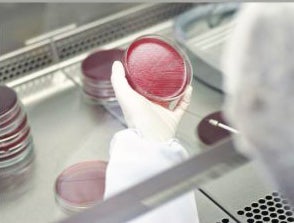
As a flagship effort to facilitate microbiome science, the Harvard T.H. Chan School of Public Health is working to build the Biobank for Microbiome Research in Massachusetts (BIOM-Mass). Led by HCMPH members Drs. Wendy Garrett and Eric Rimm, this state of the art facility will:
- Create the world’s largest microbiome sample collection, housing up to millions of microbiome specimens from hundreds of thousands of individuals.
- Deploy a novel microbiome analysis and bioinformatics data portal, which will enable scientists from academia, industry, and beyond to access an unprecedented volume of information.
Unique Research Foundation
BIOM-Mass will build on the unique collaboration between the Harvard Chan School and Brigham and Women’s Hospital (BWH), which led to the development of Harvard’s longitudinal cohort studies—the world’s most prestigious set of cohort resources.
Harvard’s cohort studies are a powerful epidemiologic resource with biennial participant data collected from more than 200,000 participants over the last 30+ years, including measures of lifestyle, behavior, and characterization of over 60 diseases. Collectively, these studies comprise more than 3.5 million biospecimens, providing a unique resource to examine links between lifestyle, metabolism, genetic susceptibility, and disease.
Scientific Impact
BIOM-Mass will enable cataloging of microbial populations and structures across multiple body sites and tens of thousands of individuals, combining that data with rich individual lifestyle, health, and genetic information to put microbiome samples and biospecimens in context.
Collection Capacity & Sample Integrity
The BIOM-Mass Initiative will leverage the extensive experience and robust infrastructure of the existing BWH/Harvard Cohorts Biorepository, a global leader in biospecimen management. This provides the capacity and infrastructure to handle and house up to millions of biospecimens, including tens of thousands from BWH/Harvard cohorts, but up to thousands more from additional studies and from external partners.
Extraordinary Convening Power
The Harvard Chan School has a strong and extensive network of collaborators within academic institutions and industry partners around the world. The School is positioned to leverage its convening power to design and execute the BIOM-Mass Initiative, and leverage additional resources to maximize the facility’s value to the global scientific community.
Supporting the Life Sciences in Massachusetts
The Harvard Chan School received $4.9 million from the Massachusetts Life Sciences Center to launch BIOM-Mass in collaboration with the Brigham and Women’s Hospital (BWH) and Massachusetts General Hospital (MGH). The award is part of $18 million in capital infrastructure grants given by the Massachusetts Life Sciences Center to research institutions in the state. Including over 20,000 samples drawn from the initial flagship collection in the Nurses’ Health Study II, the project will create the world’s largest microbiome sample collection and data portal, housing up to millions of profiled microbiome specimens. In addition to its academic research goals, BIOM-Mass is thus uniquely poised to support local biotechnology industries in Boston and across the state by leveraging Massachusetts technology infrastructure and, in turn, providing data, resources, and new scientific advances to the community.
